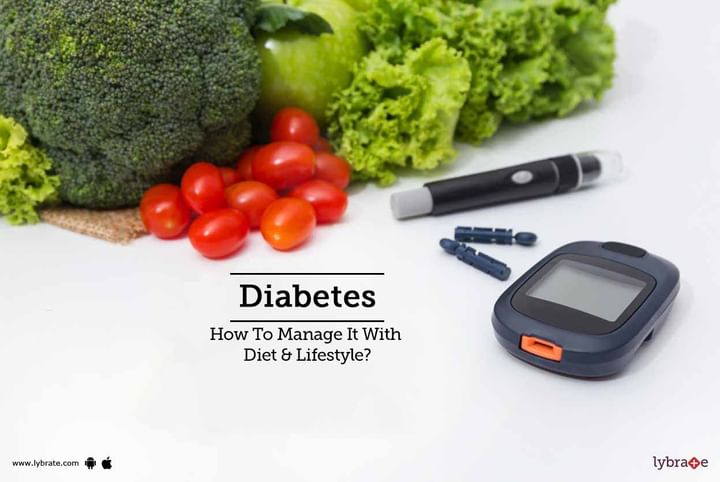Diabetes - How To Manage It With Diet & Lifestyle?
Diabetes is a lifestyle disease, with the incidence mainly increased by changing lifestyles including food habits and sedentary way of life. How does it happen? The sugar that is consumed is metabolized by a hormone known as insulin. Diabetes can occur due to two reasons:
- Reduced amount of insulin production
- Increased amount of sugar levels beyond what the produced insulin can metabolize.
Risk factors: Diabetes can be genetic, but in most cases, it is acquired and the following are risk factors for the same.
- Ethnicity (Hispanics, Latino Americans, Afro-Americans, etc.)
- Dietary habits including excessive consumption of sugar(s), refined foods, processed foods
- Impaired glucose tolerance
- Developing resistance to insulin (thereby increased sugar levels)
- Decreased amount of dietary fiber
Symptoms:
- Increased thirst
- Increased appetite
- Increased urination
- Increased fatigue
- Unintended weight loss
- Dryness and itching of skin
- Delayed healing of wounds
- Reduced sensation in the lower limbs
Management through Lifestyle changes:
Diabetes 1 which requires insulin is not preventable but type 2 diabetes is easily manageable through lifestyle changes. This can prolong the onset of getting diabetes and reduce the severity of the disease. It also helps reduce complications. This would require a combination of diet, lifestyle changes, and healthcare.
Diet:
- Sugars are the main culprit, and refined sugar consumption should be reduced.
- Oils, white rice, refined flour, processed foods, packaged foods, canned foods, etc. also to be reduced.
- Increase the amount of fresh fruits and vegetables. This helps reduce calories and also increase fiber consumption.
- When it comes to fats, increase consumption of unsaturated fatty acids and reduce saturated fatty acids.
- Sufficient hydration ensures the toxins are washed off and the tissues are well hydrated.
- Pack the diet with essential vitamins, minerals, and antioxidants. Diabetes is considered a chronic inflammatory process, and including antioxidants in your diet ensures that the buildup of toxins is reduced and inflammation is controlled.
- Avoid eating large portions at any meal. Small, frequent meals ensure the body receives an even spread of calories.
- The size of the meal should reduce as the day goes along.
Lifestyle:
- A routine exercise regimen helps in weight management, improved insulin function, and reducing fat accumulation. Pick what works for you - jogging, cycling, running, swimming, brisk walking, etc.
- Quitting smoking has multiple benefits, and improved diabetes control is just one.
- Weight management: Weight needs to be constantly monitored for deviations and immediate course corrections to be done
- Stress management: Stress is a risk factor for diabetes and controlling stress helps improve diabetes control
- Vigilance and Monitoring: Sugar levels need to be constantly monitored. Higher sugar levels or missed doses should be immediately corrected. In case you have a concern or query you can always consult an expert & get answers to your questions!



+1.svg)
